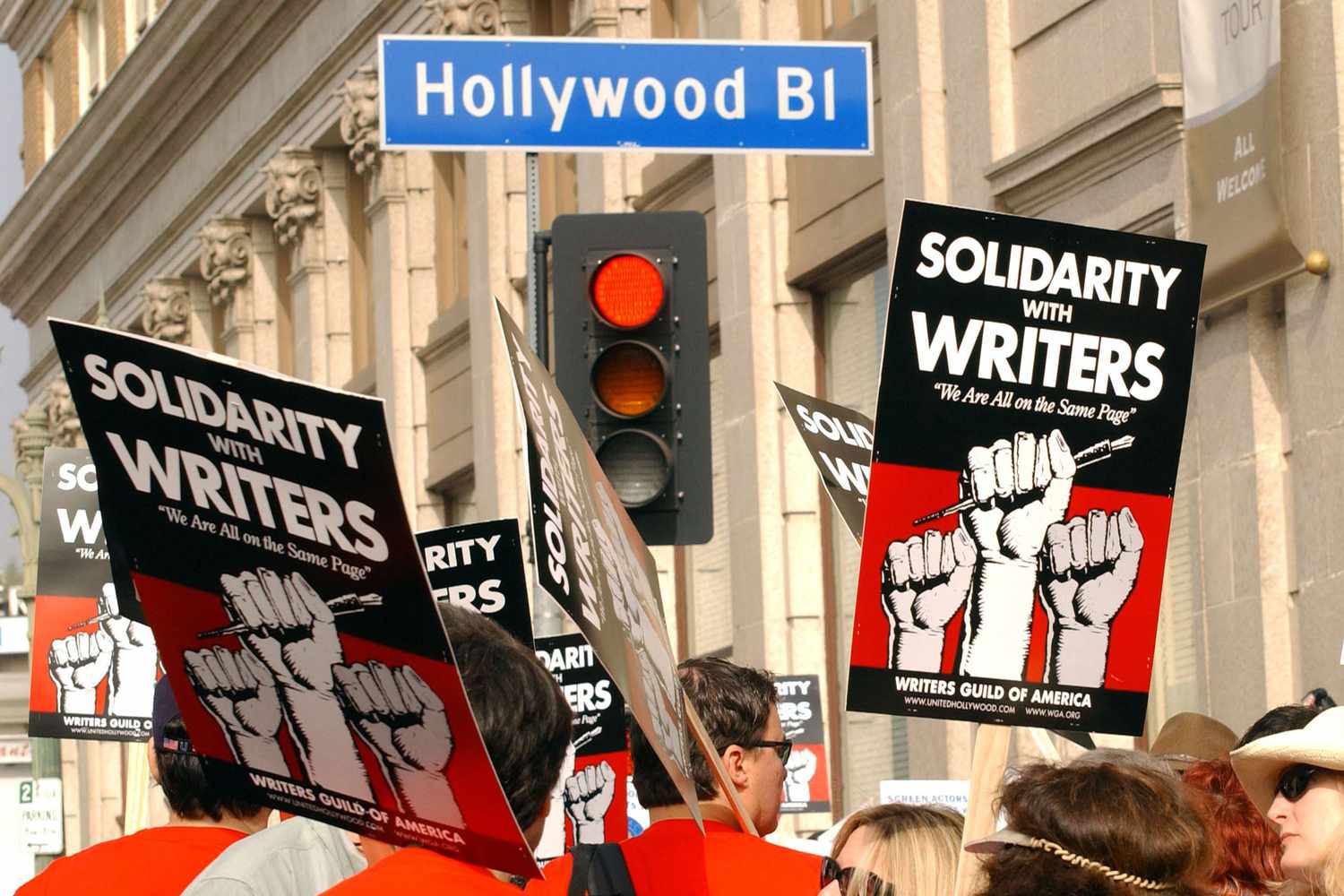Hollywood Writers' Strike Is Over After Five Months Of Negotiations
After nearly five months, the Hollywood writers' strike is over and ended on Tuesday night when their union's board accepted a contract with studios. This brought the industry at least partly back from a historic stop in production.
Author:Dexter CookeReviewer:Hajra ShannonSep 28, 20234.1K Shares187.2K Views

After nearly five months, the Hollywood writers' strike is overand ended on Tuesday night when their union's board accepted a contract with studios. This brought the industry at least partly back from a historic stop in production.
Two days after a tentative deal was reached with a group of Hollywood's biggest studios, streaming services, and production companies, the governing boards of the eastern and western branches of the Writers Guild of America and their joint negotiating committee all voted to accept the deal. After the vote, they said that the strike would end at 12:01 a.m. Wednesday and that writers could go back to work.
The Hollywood Writers' Strike Is Over
After 148 days, the Hollywood writers' strike is finally over.
Leaders of the Writers Guild of America have voted unanimously to let their members go back to work. This comes after a tentative deal was reached between union negotiators and Hollywood studios and streaming services on Sunday. This effectively ends the months-long strike that has slowed down the industry.
“„The WGAW Board and WGAE Council also voted to lift the restraining order and end the strike as of 12:01 am PT/3:01 am ET on Wednesday, September 27th. This allows writers to return to work during the ratification process, but does not affect the membership’s right to make a final determination on contract approval.- Writers Guild of America
The three-year contract says that pay will go up by 12.5%, starting with a 5% raise when the contract is signed. For the next two years, writers will get raises of 4% and 3.5%, respectively. The WGA asked the Alliance of Motion Picture and Television Producers for a 16% raise over three years before the 148-day strike.
In addition to pay raises, writers were able to get a 76% rise in the amount they get from foreign streaming. WGA says that this will raise their residuals from Netflix for a single hour-long show from $18,684 to $32,830. Writers will also get a "viewership-based streaming bonus" of $9,000 to $40,500, depending on how long the show is or if the price for the streaming feature is more than $30 million.
The tentative agreement, which was reached earlier this week, is a turning point for Hollywood's film and TV studios. This summer, the WGA and SAG-AFTRA, the union for actors, went on strike to fight for better pay and protections against artificial intelligence.
The contract, which ends in May 2026, includes pay raises, better benefits, protections against the studios' use of artificial intelligence, guarantees for streaming compensation, longer job terms, and other perks.
The use of creative artificial intelligence was one of the main things that led to the strike. At first, the WGA asked that AI not be allowed to write or rewrite creative work or come up with new ideas for writing. It also asked that none of the information in the deal be used to teach AI.
The new agreement says that AI is not a writer and that anything it makes can't be called literary, assigned, or source material. It does make it possible for writers to use AI as a tool, as long as the production company agrees. But writers can't be forced to use AI to come up with content, and a company has to say if they give a writer something that was made by AI.
For big streaming projects, like movies with a budget of at least $30 million, the minimum pay for a story and teleplay will go up 18%, to $100,000. The minimum residual pay for high-budget streaming shows will go up by more than a quarter. And when shows on video-on-demand services are watched by a fifth of domestic users in the first three months of a project's run, writers will get a 50% bonus.
For big-budget shows on the top services, this means that writers could get more than $9,000 for a half-hour episode and more than $16,000 for an hour-long show.
These services, which include Netflix, Disney+, and Max, also promised to make it easier to find out how many hours of each show were watched.
AI protections were part of a summary of the deal made by the WGA. “AI can’t write or rewrite literary material,”the statement said. It also said that writers must be told about any literary work that was written by AI.
The WGA went on strike on May 2, making it one of the biggest strikes in the union's history. In 1988, when the WGA went on strike for 154 days, they set a new record.
Economists say that the Hollywood strikes have hurt the economy of the whole country by more than $5 billion. Hollywood insiders aren't the only ones who have been hurt. Restaurants and companies that serve the entertainment industry, like those that do make-up or cleaning, have also been hurt.
Bill Maher said he would go back on air during the writers' strike, but then he changed his mind. On Tuesday, he stated that his show would come back for good on Friday.
Final Words
The Writers Guild of America (WGA) and Hollywood studios have made a deal to end the writers' strike. It has been going on for almost five months. Writers will be able to go back to work on Wednesday, according to the terms of their new deal.
AI became a major point of disagreement between the writers and companies during the historic strike. Even though text-based generative AI tools like ChatGPT don't allow for as much creativity as they are, writers worried that companies would still try to use these tools to avoid paying union members.

Dexter Cooke
Author
Dexter Cooke is an economist, marketing strategist, and orthopedic surgeon with over 20 years of experience crafting compelling narratives that resonate worldwide.
He holds a Journalism degree from Columbia University, an Economics background from Yale University, and a medical degree with a postdoctoral fellowship in orthopedic medicine from the Medical University of South Carolina.
Dexter’s insights into media, economics, and marketing shine through his prolific contributions to respected publications and advisory roles for influential organizations.
As an orthopedic surgeon specializing in minimally invasive knee replacement surgery and laparoscopic procedures, Dexter prioritizes patient care above all.
Outside his professional pursuits, Dexter enjoys collecting vintage watches, studying ancient civilizations, learning about astronomy, and participating in charity runs.

Hajra Shannon
Reviewer
Hajra Shannona is a highly experienced journalist with over 9 years of expertise in news writing, investigative reporting, and political analysis.
She holds a Bachelor's degree in Journalism from Columbia University and has contributed to reputable publications focusing on global affairs, human rights, and environmental sustainability.
Hajra's authoritative voice and trustworthy reporting reflect her commitment to delivering insightful news content.
Beyond journalism, she enjoys exploring new cultures through travel and pursuing outdoor photography
Latest Articles
Popular Articles
